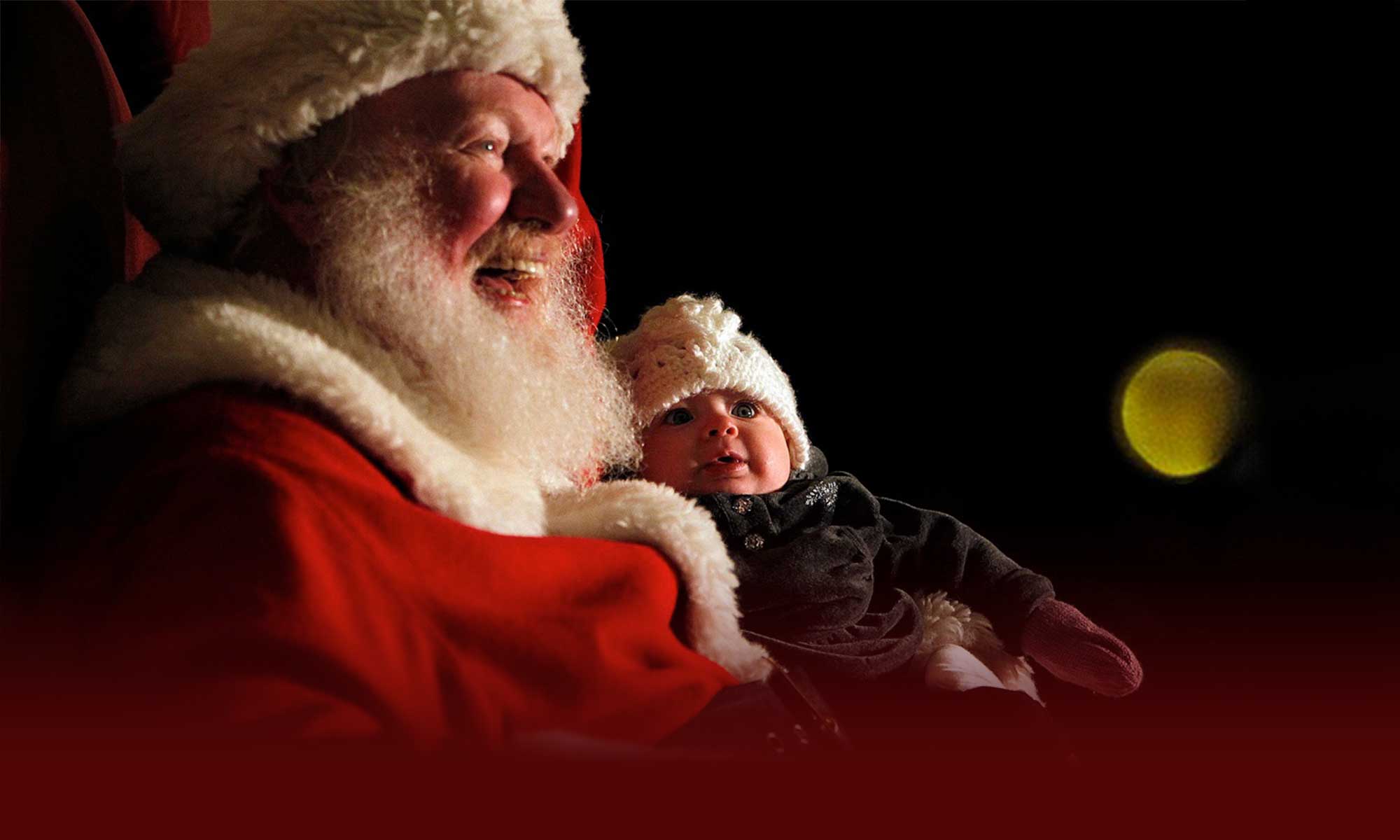
August 2024 Volume 2, Issue 8
NEW FORMAT:
The good news is that 92 classmates read the July Beachgeezer…
Although the new format is easier to read, it has only elicited short responses. The newsletter is more interesting when classmates actively participate with the same enthusiasm reactions shared earlier this year. To encourage reaction, here are some simple questions to consider:
What is your best, worst, most embarrassing memory from high school?
What is your best, worst, most embarrassing moment since turning 84?
What is the best song from the 1950’s? The worst song? The song that made the biggest impact on you?
Do you have an old friend you’d like to contact?
Who had the coolest car at MBHS? The best flat top? The best hairdo?
What did you think of the Chemise (“sack dress”) and other fashions from the 1950’s?
Please send your comments by email to wgswank@gmail.com
ROLL CALL:
My computer can’t open it. Sandy Jaworski Shortt (July 7, 2024)
Well I called the local computer genius and just like that I was able to open the beachgeezer!! By the way the genius told me to shut off my computer and then turn it back on and ZIPPO it works. I don’t know what I’d do without him. By the way that is my husband…. On and off works a lot of the time. Amazing. Miss Jaworski Sandy Jaworski Shortt (July 7, 2024)
As always, Bill…Hero’s Work, an’ very well done. Thank you for the effort, an’ the spectacular results! Warren Whittier (July 7, 2024)
Thanks for sending the Beach geezer how often do you have new info? Is there any old stuff to pull up? Hope your 84th was fun. My 85th was, in March as well as my husband’s 90th. Susan McDonald Knox (July 7, 2024)
Thanks Bill! As usual, reading the Beach Geezer was a pleasure. Ron Shipley (Sackrider) (July 7, 2024)
Greatful for your return. To the desk, Bill. I hope you are both well now and bring on the birthdays. Roni Parry Star (July 8, 2024)
Hi Bill. Just a short note as you are busier than I am. I enjoyed the article you sent, but I am confused. In the intro, the writer wrote his wife showed him something on her cell phone. I was hoping it was you and Jeri and she has her sight. But later on it seems the article was written by someone else. Next question, do you drive? I still have the newspaper article for you and if you don’t drive, there is no way you are coming to get it so I would take it to you on one of my better days. So, please let me know if Jeri has her sight and if you need me to bring the article. In the meantime, be safe. Your Pal, WMS Margaret Ryan Smith (July 9, 2024)
(EDITOR’S NOTE) My wife suffered a stroke on June 19, 2024 and is permanently blind in both eyes. We are told this is a very rare condition. Hopefully, she may regain enough vision to see fuzzy images in the future. Needless to say, our world is turned upside down.)
Dear editor,
There I was, at the bowling club all dolled up for my 84th birthday. The Nimbin bowlers joined the ilukans for a day of grey hair fun. The winning bowl had just left my sins hand when suddenly I looked up and saw only the underside of a table. It’s true, dear beechgeegers and geezettes. Roni star reached out for a hug and rolled over, aka fell, kaboom onto the floor. Total embarrassment, full rescue operations took place and this dugong of a woman was hauled up from the deeps and plunged back into her chair Aside from my shattered ego, I managed to break ribs. So much so that I am now at the foot of the cross and blessed to be able to share my very odd 83th with you. Cheers, ronistar49@yahoo.com * Roni Parry Star (July 10, 2024)
Hi Bill. You didn’t tell me there were any articles by you in the paper. I was just scanning the sports section and I saw one article and then I saw the other one. Why is the paper doing so much on the Japanese players now? Is it something about the time of the year? Margaret Ryan Smith (July 14, 2024)
(EDITOR’S NOTE) I wrote two articles for the San Diego Union-Tribune about interned Japanese American baseball players during WWII. The articles are near the end of this newsletter for those with an interest in the subject.)
Thank you Bill, another good one! I hope Jeri is doing OK Terrible shock for ALL of us, especially the Breakfast Geezers. Tell her we all love her! Hope you are well, Walt Walter Andersen (July 15, 2024
Dear Beechgeezers and Beechgeezettes, I described to (husband) Jim in detail how every day for 5 years, we had P.E every morning. Our gym clothes were clean, even the tennis shoes. Collars were inspected as we stood in straight lines. We played as were told and supervised. Sweat was removed in a daily shower. All this was done in one hour before starting our first period. I remember some 6 periods of different classes a day. No wonder we are the rare survivors * Roni Parry Star (July 17, 2024)
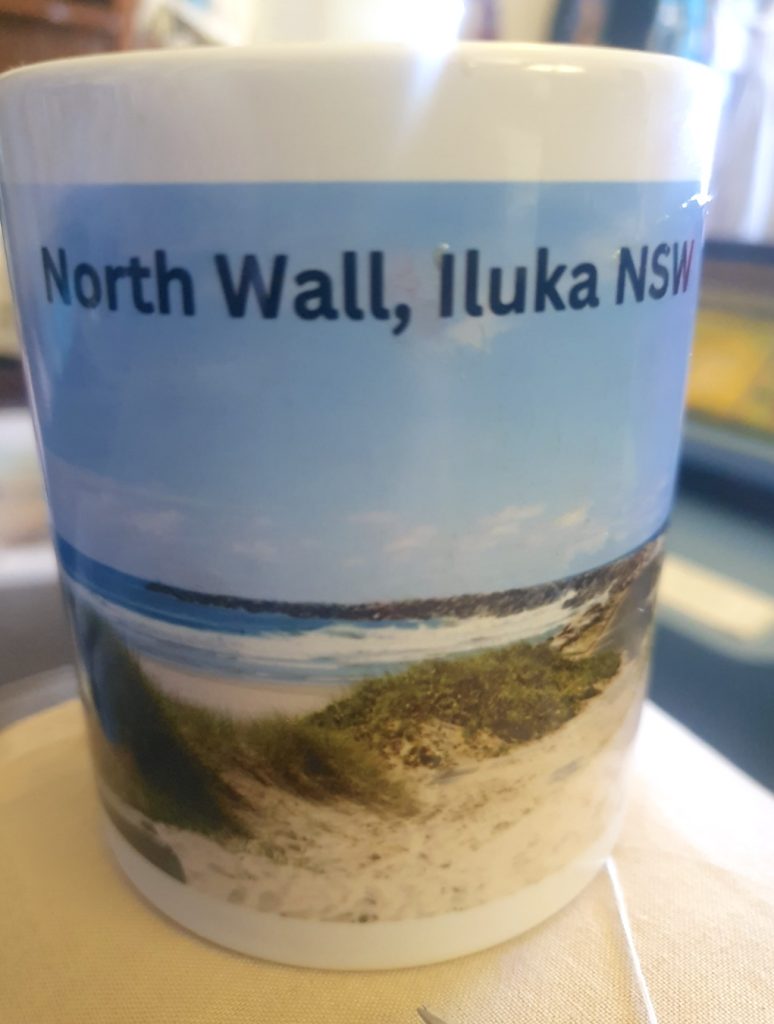
Here is a surf report from Roni star downunder. It was Friday, the trades were out in force looking more like a pod of seals. An unusual north wind blew waves pushed up from the south. Wind against tide blew waves almost as tall as the sea wall that forms the pocket. I have never seen such perfect surfing conditions. The 15 or so surfers literally danced on the top of those waves. It was a real heart warmer for this old surfer girl. More thrilling, I am told the women surf daily at 10 am, same spot. Surf Iluka !* Cheers, ronistar49@yahoo.com Roni Parry Star (July 25, 2024)
1958 Taroga on eBay
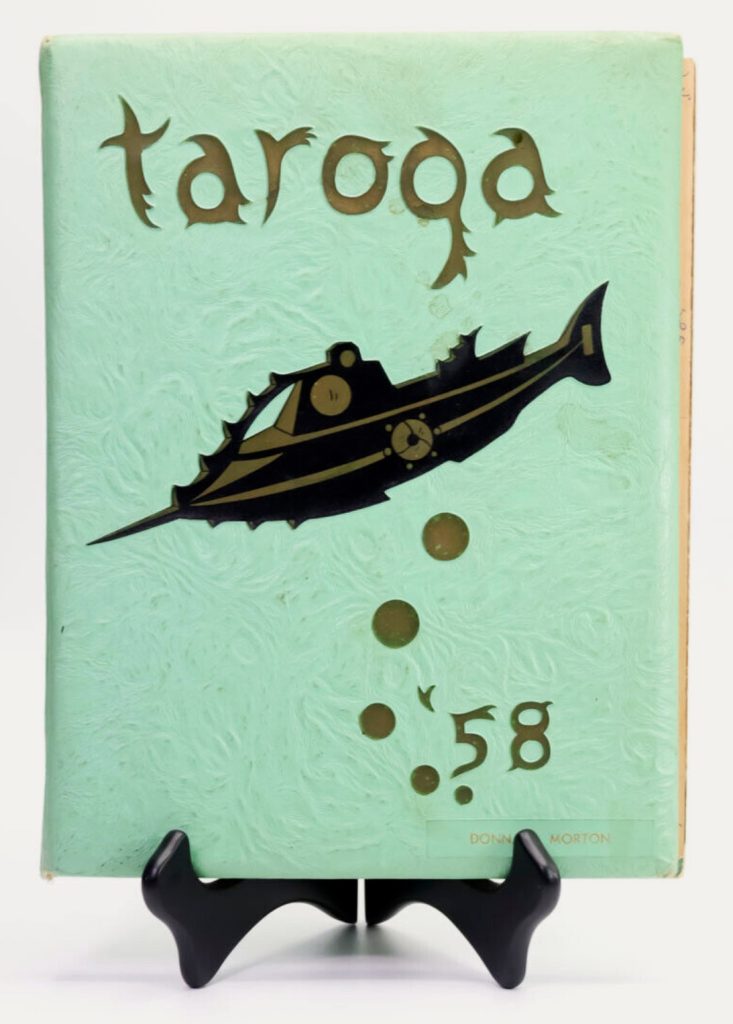
For anyone without their senior yearbook, there is a 1958 Taroga for sale on eBay that belonged to our classmate, Donna Morton. The asking price is $55.00. This is the link: https://www.ebay.com/itm/115749552444
August MBHS 1950’s Alumni Breakfast
Only ten people attended today’s breakfast… I was late, because I didn’t wake up until 9:19 AM! Photos below are the remaining classmates when I arrived. (top) Pam and Wayne Lollis (middle) Pat Mann and Chrissy Wagner (bottom) BS and Bill Mann. Good, caring friends.
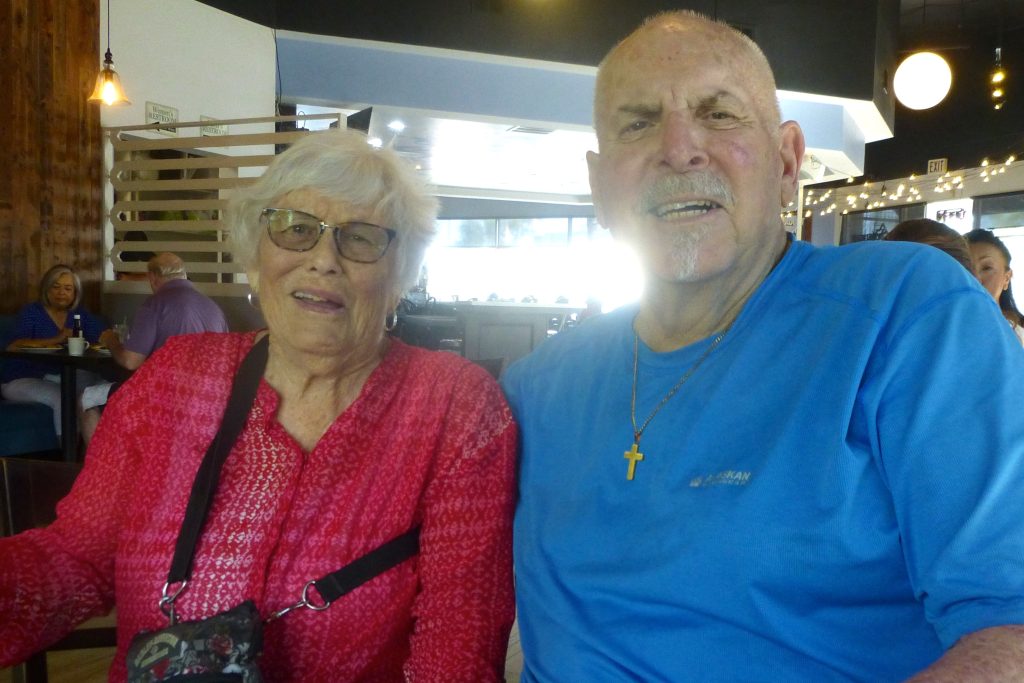
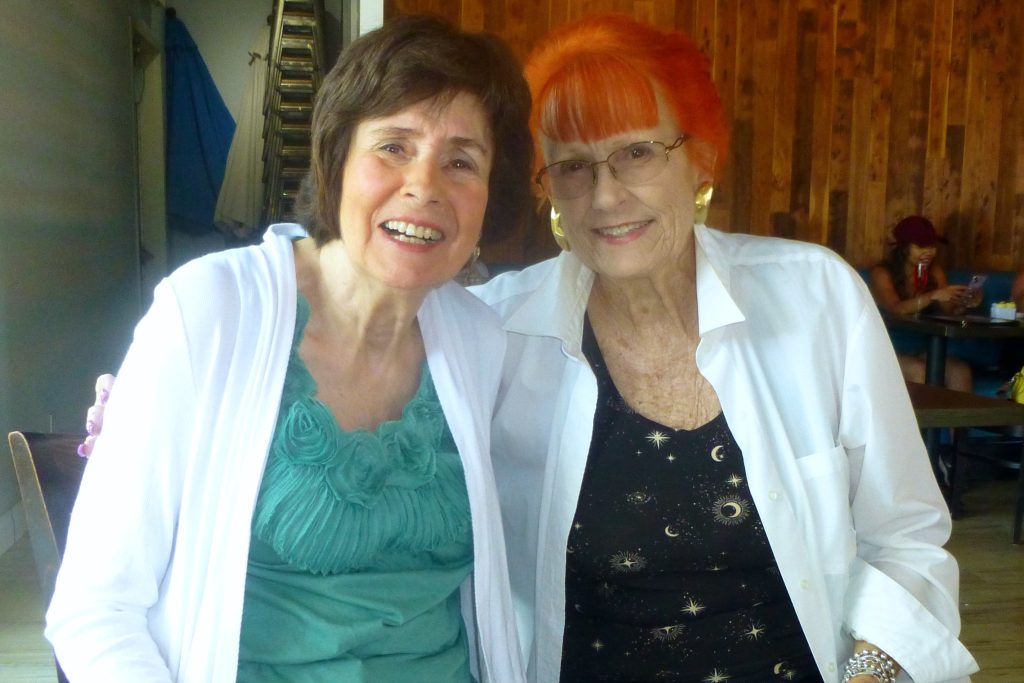
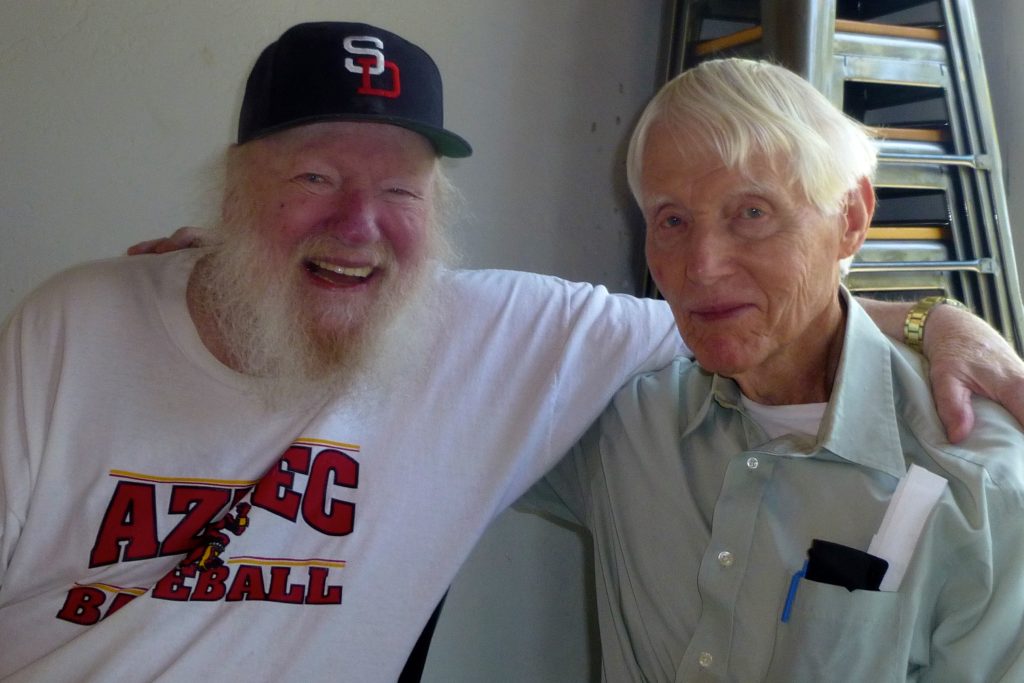
The following article appeared in the San Diego Union-Tribune on July 14, 2024:
Baseball bonded 3 Japanese Americans from San Diego during, after World War II

By BILL SWANK
UPDATED: July 14, 2024 at 1:32 p.m.
In 1910, a Japanese American baseball team from Los Angeles was scheduled to play against the California Winter League champion San Diego Bears.
Fans in attendance at Logan Heights’ Athletic Park could watch exhibitions in jujitsu and kendo — and check out a couple of baseball ringers. The Los Angeles team, made up of first-generation Japanese immigrants, planned to bring Angels catcher Jess Orndorff and White Sox pitcher James “Death Valley Jim” Scott south from Los Angeles.
Rain in the forecast apparently convinced the L.A. team not to make the trip. The game was rescheduled for a week later.
This time, Orndorff and some of the Japanese American players missed the first train to San Diego. Amateurs were recruited from the stands and the Bears “made the game one long joke,” according to a report.
When Orndorff finally arrived in the late afternoon, “Death Valley Jim” took the mound. The White Sox hurler was dominating, but the game was called because of darkness after only four innings.
San Diego won 1-0 and Bears manager Will Palmer wisely decided never to play the Los Angeles team again. They proved to be stiff competition.
San Diego teams played Japanese and Japanese American teams for decades. In 1931, San Diego beat the Los Angeles Nippons 11-0. In 1935, Texas Liquor blasted the mighty Tokyo Giants 13-3. A few days later, the touring Japanese professionals returned to San Diego and beat the local Whippets 4-1.
It wasn’t just the visiting teams. San Diego was home to a number of great Japanese American baseball players during the 1930s and ’40s.
In 1936, Hideo Higashi won the Linn Platner Perpetual Baseball Trophy at San Diego State. His .406 batting average set a new standard for Aztec hitters.
Akira Takeshita was “Aki” to family and friends, but on San Diego baseball diamonds, he was a fireballing right-hander known as “Jumbo.”
And then there were the three baseball-loving men who grew up in San Diego and played together at the Poston War Relocation Center, a Japanese American internment camp located along the California-Arizona border, before returning to the city they loved.
Here are their stories:
Richard “Babe” Karasawa
Richard Karasawa was born in 1928, the year after Babe Ruth hit 60 home runs. His older brothers were serious baseball fans; they told Richard that when people asked him his name, he should say, “Babe.”
Young “Babe” often attended Padres games at Lane Field.
“I never met a kid who saw as many games as I did,” Karasawa said. “I even saw Ted Williams after he graduated from Hoover High School and then headed to Boston.”
Karasawa and his family were among the 18,000 people interned at Poston during World War II. The camp opened June 2, 1942, following President Franklin D. Roosevelt’s Executive Order 9066, which forced Japanese Americans on the West Coast into “relocation centers” located in remote outposts.
In October 1944, Karasawa left Poston to attend Todd School for Boys in Woodstock, Ill. His fondest baseball memory was beating the prestigious Culver Military Academy.
“Todd had only 40 to 50 students and Culver about 2,000,” he said. “I batted leadoff, got 3-for-4 and scored three runs. One of their players was the son of Bill Terry, the manager of the New York Giants at the time.”

Karasawa served in the Army and then attended Caltech, where he was named co-MVP of the college’s baseball team in 1950. He graduated in 1952 with a degree in civil engineering.
“Baseball was my best sport,” he said, “and I was all-conference each year and ended up as captain.”
Karasawa died in 2020.

Paul “Po” Kaneyuki
Paul Kaneyuki played with Karasawa at Poston. Poston closed in 1945, and Kaneyuki’s family moved into Frontier Housing located in San Diego’s Midway District.
Kaneyuki attended Point Loma High School alongside Don Larsen, his longtime neighbor, friend and American Legion teammate.
An Indiana transplant, Larsen was naturally drawn to basketball, not baseball. He would go on to pitch the only perfect game in World Series history as a member of the New York Yankees.
In 1947, Larsen was selected to the All-Metropolitan League basketball team. Kaneyuki was named the Metro League Baseball Player of the Year.
That year, with Kaneyuki in the lineup, Point Loma won the Pomona 20-30 Baseball Tournament.
The honors didn’t stop there. Among first-team players on the 1947 Southern California Interscholastic Federation (SCIF) baseball team were future PCL Padres third baseman Rudy Regalado and future Padres Hall of Fame manager Dick Williams.
The only San Diego high school players to make the second team were Ray Mendoza and Jerry Dahms from San Diego High School — and Kaneyuki from Point Loma. Kaneyuki went on to play football and baseball at San Diego City College.
Larsen returned to San Diego in March 2011 to participate in a fundraiser for the Point Loma High School baseball team. Kaneyuki and Masaharu “Fatty” Tsuida attended the event.
The fundraiser was a great success, and Larsen was thrilled to see his old friends. One of the most popular items sold was a 1946 American Legion baseball team photo autographed by Larsen and Kaneyuki.
Afterward, Larsen confided that he was always more comfortable with the “Frontier Kids.”
Kaneyuki died in 2023.keo “Tak” Sugimoto’s 1945 San Dieguito High School yearbook photo.
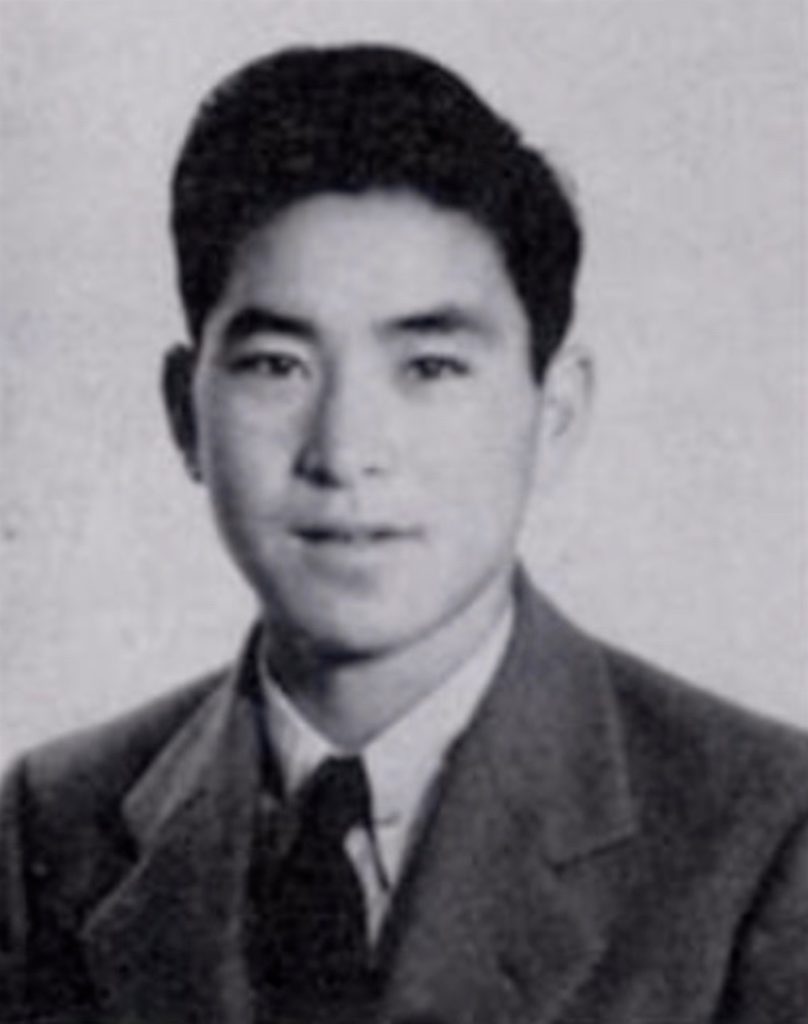
Takeo “Tak” Sugimoto
Takeo Sugimoto was born in 1927 and grew up in Encinitas. After Pearl Harbor, he and his family were interned at Poston.
”In the camps,” he said, “all I did was play baseball.”
At age 15, Sugimoto played for the Camp I men’s team against the powerful Camp III men.
“Jumbo Takeshita was their star pitcher,” he said. “I kind of shocked him when I went 3-for-3 and drove in a run.”
As a young boy, Sugimoto wanted nothing more than to play baseball for San Dieguito High School.
Josephine Yoch, a Spanish teacher at San Dieguito, occasionally visited those interned at Poston. Yoch quickly learned Sugimoto’s love for baseball. She asked Arthur Main, the principal of Poston’s school system — and, coincidentally, the former principal at San Dieguito — if the boy could return home.
With Main’s blessing, Yoch asked if any San Dieguito teachers would allow Sugimoto to live with them during his senior year. A biology teacher offered his home.
In September 1944, the student body voted that Sugimoto could return to school. He earned his baseball letter and received a standing ovation at graduation.
“It was exhilarating,” he said. “It was a dream come true. My happiness came when I was on campus when I could be with my friends.”
Sugimoto planned to enter UCLA in the fall, but, like most high school seniors in 1945, received a draft notice following graduation. In the meantime, he entered Chaffey Junior College.
“There were only two civilians on the baseball team, me and a Caucasian kid,” he said. “Everyone else was a returning veteran. A lot of those guys fought in the Pacific and I didn’t know how they would treat me. Know what? They took real good care of me. They stood up for me when comments were made by opposing teams. I had a great year and even made all-league.”
Sugimoto died in 2019 at age 91.
